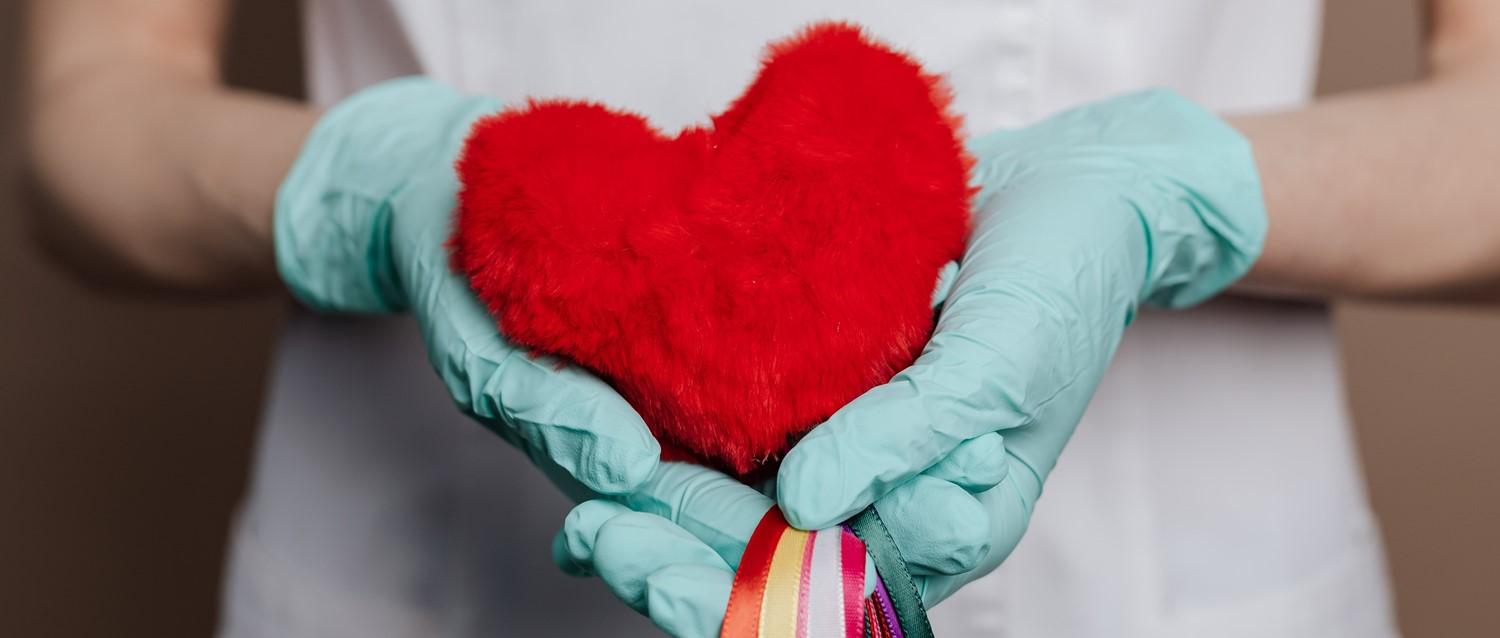
Is cardiomyopathy genetically inherited?
Peer reviewed by Dr Sarah Jarvis MBE, FRCGPLast updated by Lydia SmithLast updated 10 Dec 2021
Meets Patient’s editorial guidelines
- DownloadDownload
- Share
- Language
- Discussion
Around one in 250 people are affected by cardiomyopathy, a group of conditions that affect the structure of the heart. Cardiomyopathy can be caused by other heart and circulatory conditions, but some cardiomyopathies can also be inherited.
In this article:
Continue reading below
What is cardiomyopathy?
Cardiomyopathy is a general term for diseases of the heart muscle. This affects its ability to pump blood around the body.
"Cardiomyopathy is a disease which can affect the size, shape or thickness of the heart muscle," says Julie Ward, senior cardiac nurse at the British Heart Foundation. "It can be caused by other heart and circulatory conditions, such as high blood pressure, damage from a heart attack or abnormal heart rhythms. However, most types of cardiomyopathy are inherited."
Additionally, some types of cardiomyopathy may be caused by a combination of environmental and genetic factors. "Some family members may be affected more than others, and some may not be affected or have any symptoms," says Ward.
Which cardiomyopathies are inherited?
"There are three main types of cardiomyopathy, which are often or usually inherited: hypertrophic cardiomyopathy (HCM), dilated cardiomyopathy (DCM) and arrhythmogenic right ventricular cardiomyopathy (ARVC)," explains Ward.
In hypertrophic cardiomyopathy, the heart muscle cells enlarge and the walls of the heart chambers thicken. Although many people won't be affected day-to-day, the condition can still be serious. It is the most common cause of sudden unexpected death in childhood and in young athletes and can lead to abnormal heart rhythms, restricted blood flow or the mitral heart valve becoming leaky.
In dilated cardiomyopathy, the muscle walls of the heart become stretched and thin, so they can't contract properly to pump blood around the body. This can lead to a greater risk of heart failure, which causes shortness of breath, extreme tiredness and ankle swelling. There is also a risk of heart valve problems, an irregular heartbeat and blood clots.
Arrhythmogenic right ventricular cardiomyopathy is a rare condition in which proteins do not develop properly and therefore can't keep the heart muscle cells together. These become detached and fatty deposits build up in an attempt to repair the damage.
As a result, the heart doesn't pump blood around the body properly. This type of cardiomyopathy often gets worse over time and can also cause abnormal heart rhythms.
"Each type of cardiomyopathy causes different changes to the heart, but all can affect the structure of the heart and reduce its ability to pump blood around the body," Ward adds. "They can also affect the way the electrical system makes your heart beat."
Continue reading below
What does genetic testing for cardiomyopathy involve?
Genetic testing can be used to find out whether you have a genetic fault or a specific gene which can lead to an inherited heart condition. This often involves a blood or saliva test. Genetic testing can help doctors assess whether you should be monitored or if you should start any treatment, particularly if you do not have any symptoms.
Before you undergo a genetic screening, heart specialists will speak to you about your medical and family history. You may have blood tests or an electrocardiogram - a test which records the rhythm, rate and electrical activity of your heart. You may also be given an echocardiogram, a scan used to look at the heart and nearby blood vessels.
Who can get a genetic test for cardiomyopathy?
You may be advised to undergo genetic testing if your doctor wants to confirm whether you have cardiomyopathy. You may also be tested if an immediate family member has been diagnosed with cardiomyopathy and your doctor wants to know if you are at risk of inheriting the condition.
"Because cardiomyopathies can be inherited, it's important that people with a family history speak to their doctor about screening for themselves and their family," Ward says.
"It's important that families affected by cardiomyopathy receive accurate assessment, diagnosis, treatment and support from specialists. This can include the possibility of genetic testing - a blood or saliva test to attempt to find a faulty gene or genes."
Researchers are still studying how certain genes impact different types of cardiomyopathy. While some genes appear to lead to milder forms, others may pose a greater risk to the individual. For example, if they cause abnormal heart rhythms, known as arrhythmias. However, test results may not always be conclusive as the search for genes that cause cardiomyopathies is ongoing.
Patient picks for Heart disease

Heart health and blood vessels
What is alcoholic cardiomyopathy?
Excessive alcohol consumption can damage the heart and lead to a condition called alcoholic cardiomyopathy. How common is this alcoholic cardiomyopathy, and what are the symptoms?
by Amberley Davis

Heart health and blood vessels
Dilated cardiomyopathy causes: what are the risk factors?
Having dilated cardiomyopathy means that your heart muscle is weakened, which affects how your heart pumps blood around your body. There are a wide range of dilated cardiomyopathy causes, including genetics, other health conditions, alcohol consumption and a poor diet. While we can't control some of these risk factors, we can make positive lifestyle changes to reduce our risk of developing dilated cardiomyopathy.
by Amberley Davis
Continue reading below
Article history
The information on this page is peer reviewed by qualified clinicians.
10 Dec 2021 | Latest version
10 Dec 2021 | Originally published

Ask, share, connect.
Browse discussions, ask questions, and share experiences across hundreds of health topics.

Feeling unwell?
Assess your symptoms online for free
Sign up to the Patient newsletter
Your weekly dose of clear, trustworthy health advice - written to help you feel informed, confident and in control.
By subscribing you accept our Privacy Policy. You can unsubscribe at any time. We never sell your data.